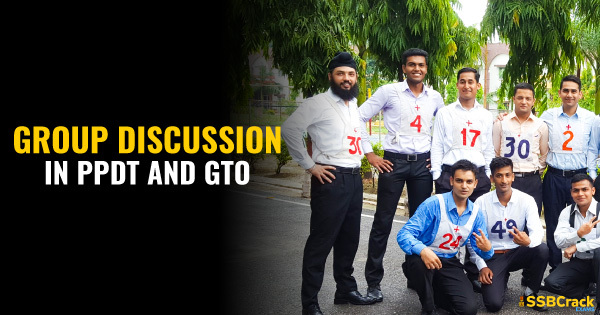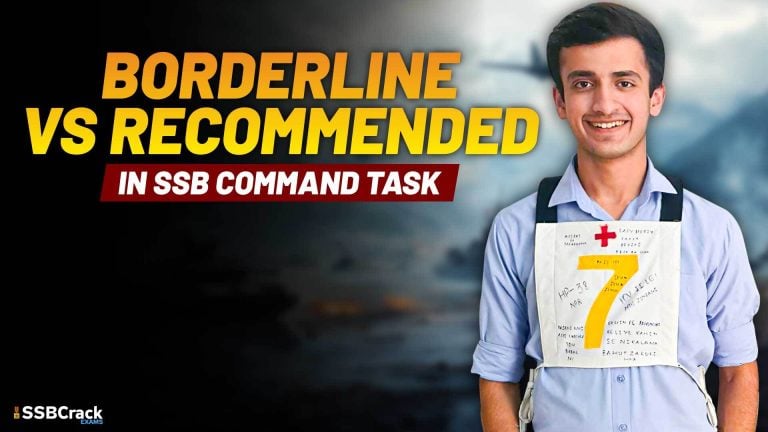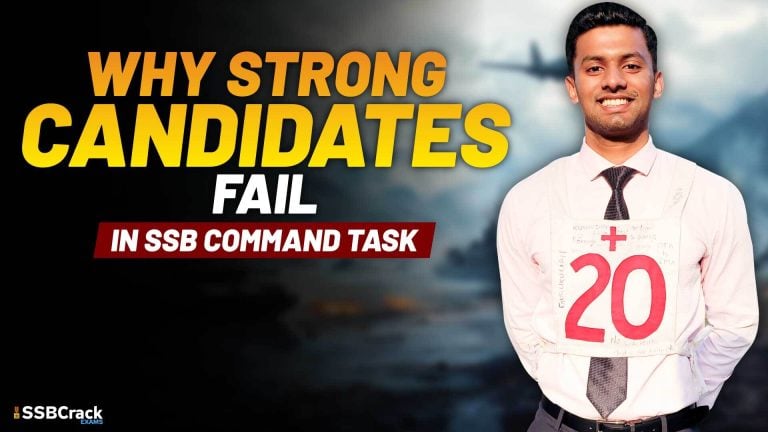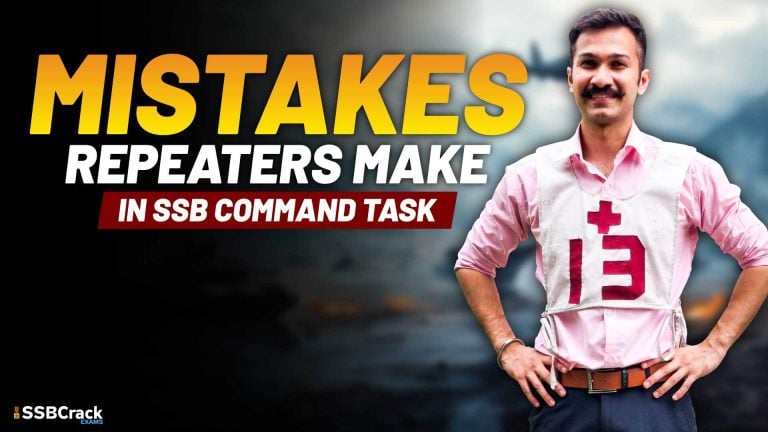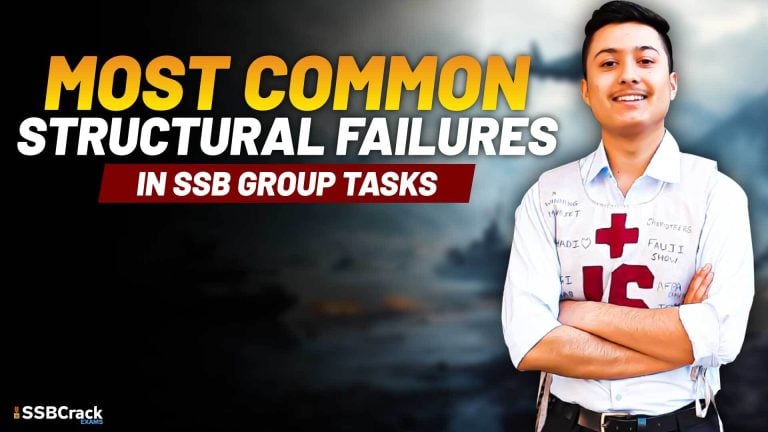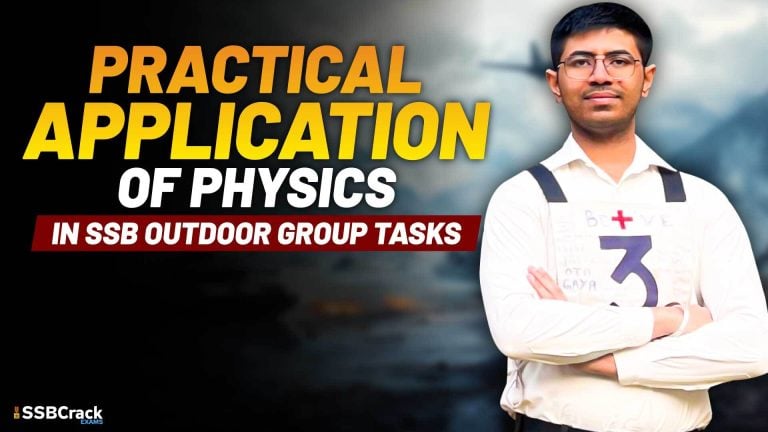The Group Discussions will be conducted as a part of the Group Testing on the Day-3 of the SSB Interview process. As part of the Group Discussion, the candidates are given two topics to discuss one after another. While they are given the choice to choose the first topic by voting among themselves but the second one is of GTO’s choice. The topics cover important international issues, national issues, social issues and current events. They are allotted 20 minutes each for a healthy discussion on each topic.
Group discussion is an excellent way to display your knowledge in current trends and matters of the globe, how well informed you are about the things happening around you, and most of all, to examine your communication skills. Fundamentally, three personality traits are assessed through group discussions, namely, communication abilities, interpersonal skills, and knowledge of the subject. It is a means to ascertain the analytical skills of the candidates. Hence, content as well as the structure of one’s views matter. GTO officially tells the rules and give a short brief about the process. He/she also tells that candidates don’t have to give a conclusion unlike GD in Stage 1.
Approach the SSB Centre with the mindset of treating the place to make friends, followers and healthy competitors. Make it a group space to absorb the essentials of the topic, plan your mental argument, contribute views from your own perspective to improve the discussion and generate group cohesion despite differences of opinion and ideology.
• Be an active participant in your social network as it helps in tackling a different type of people along with enhancing knowledge.
• You should have basic knowledge of current event happening around you and in the world.
• Be an active communicator and express your views and ideas in a polite yet firm manner in simpler terms. You should back your arguments with concrete information and facts.
• Respect other candidates’ views and analyse accordingly to reply.
• To practice on GD topics non-verbally, a candidate can write his/her own views on those topics as it helps them to retain this information and perform well when facing in reality.
• Assessors are more interested in qualities that you will be showcasing through your behaviour, though the effect of knowledge and data cannot be neglected.
• Logical reasoning and supplementation of it with useful example is liked by all as it helps in making your points extra substantial.
• Confidence has always been the key to success, so see that whatever is presented, it is done with full confidence and vigour.
• There is nothing like that I will always speak for the topic or against it. Please understand the difference between debate, extempore and a Group Discussion. Here things are limited to expressing of views only.
• Body language is positive creates an altogether different level of awareness towards the other members of the group and they are always interested in listening.
• Being a good listener is always a sign of a good member of a group and helps in creating a good group dynamics.
You can do the below-mentioned things for your optimum performance in group discussions and GTO testing too.
Remember The Social Context
Be socially vocal and present your views wherever required and practice speaking on stage. Keep the practice persistent and evaluate the tone, pitch and modulation of your voice and moderation of your body posture along with facial expressions as they tend to give away a lot. Eye contact should be maintained with the group members only and don’t steal glances at the GTO officer as it’s akin to looking for validation and trying extra hard to impress him. Don’t try to show off by speaking more but remember to balance the content with knowledge and coordination. The basic crux to follow is that – contribute but don’t overdo it.
Modify And Execute
You have to be ready for any upcoming and unexpected course of the discussion that may crop up due to any group member or any unspecified group dynamics. Always remember that at some point of discussion, it tends to subsidize and that’s your opening to enter the discussion and utter your points. Try to focus on the most dominating participant of the group to tackle him/her in a polite yet firm manner. Modify your plan of action as the discussion progress further and that is necessary because the planning you make often fails at the execution stage. The best you can do is to bring something totally new in the game and change the entire course of direction which may be entirely new for the strong group members. It will take them some time to moderate their domination and come up with new arguments.
Maintain Healthy Competitors
You will have to step up and sell your skills because that’s why you are there. You will have to make the efforts to display your talent, knowledge, soft persuasion and suitably moderated and modulated voice. You will get a chance to impress the group members by your superior fact-based discussion skills. You will have to keep things in check as they will be progressing and have to moderate opposition of opponent group members by the firm and pleasant demeanour.
Make A Mental Plan
Make a quick mental plan to argue your content by your own rather than waiting for others and make impactful opening remarks to draw attention. The initial statement should consist of something of substance and not just pleasantries. Use appropriate and verified data to seal the argument for good and put across quick arguments to sustain the attention of everyone alike. One important thing to do is to support participants in line with your view on the topic. Be assertive but don’t be rude.
Analyse Topic And Potential Arguments
You should absorb each word about the topic being taken up for discussion by simply observing the overview of the topic. Later on, you can also do a quick analysis of the opposing views that can be raised by other candidates to counter the general perception. Pick the argument or view that you believe in and not the one chosen by others. You will have strong reasons to support your arguments.
You can prepare for SSB interview and defence entrance exams such as NDA, AFCAT, INET, and CDS by taking Written Online courses as they will not only give you access to full-length quality lectures but will also provide the facility to take standardized mock tests for better study and strategic growth in the exam. You can take multiple quizzes after each lesson to ensure the full understanding of the subject along with creating your customized lesson plans. You can check out the course content along with other important specifics at SSBCrack exams.
You can also access them through the SSBCrack Exams app available in the google play store.
Jai Hind
